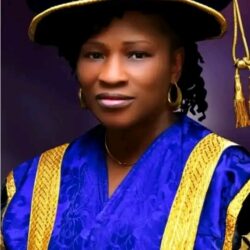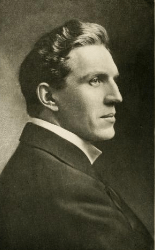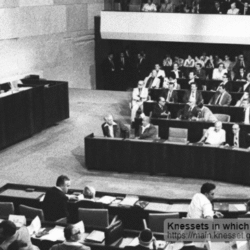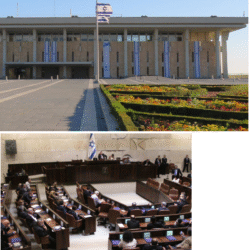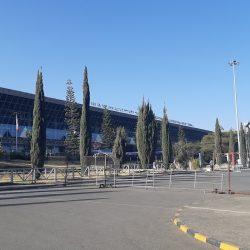Afef Abed has emerged as a notable figure in Israeli politics, serving as a Member of the 25th Knesset under the banner of the Likud party. Her ascent into national leadership marks a significant step for representation and diversity within the Israeli political landscape. Though her tenure is recent, her appointment signals a commitment to broadening participation and tackling critical social and technological challenges.
As a member of key parliamentary committees—namely, the Labor and Welfare Committee, the Science and Technology Committee, and the Special Committee for Oversight of Barrier Removal Processes—Afef Abed is quickly positioning herself as an advocate for progressive, inclusive policymaking. Her active engagement within these committees reflects a focused effort on labor rights, technological advancement, and equitable access in Israeli society.
2. Early Life and Background
Born on February 9, 1974, in Israel, Afef Abed hails from the town of Yarka, a Druze-majority locality in the Northern District. Yarka’s unique cultural backdrop, rich in tradition and communal ties, played a significant role in shaping Abed’s worldview and values. Her background offers a vital perspective in the Knesset, especially in discussions surrounding minority representation, social cohesion, and regional development.
Fluent in Hebrew, Abed integrates seamlessly into the national dialogue while drawing from her deep-rooted heritage. Her multilingual and multicultural fluency enables her to connect with a diverse electorate and contribute meaningfully to policymaking that reflects Israel’s complex social fabric.
3. Education and Professional Journey
Details about Afef Abed’s formal education and professional history prior to her entry into politics have not been publicly documented. However, her rapid ascent into the Knesset suggests a strong foundation of community leadership, civic engagement, or expertise in fields related to her committee assignments.
Her current roles in welfare, science, and accessibility indicate a professional background—or at least a deep interest—in human services, technological innovation, or regulatory reform. As her political career unfolds, further insights into her professional development are likely to emerge, offering a clearer picture of the path that led her to the national stage.
4. Political Ascent
Afef Abed’s entry into the Israeli political arena marks an important step toward greater diversity within national governance. Her affiliation with the Likud party, one of Israel’s dominant political forces, suggests alignment with the party’s nationalist and economically liberal values, while also highlighting Likud’s efforts to broaden its representative base.
Abed officially joined the 25th Knesset on January 5, 2025, as a partial-term member. Her inclusion not only strengthens the party’s outreach among underrepresented communities but also signifies a broader political strategy to address varied public concerns through fresh and diverse voices. Though relatively new to the legislative process, she has already taken on significant responsibilities that speak to her credibility and potential.
5. Roles and Responsibilities in the Knesset
Since joining the Knesset, Afef Abed has been appointed to three pivotal committees that underscore her legislative interests and influence:
- Labor and Welfare Committee (since February 17, 2025): In this role, Abed participates in shaping policy around employment standards, social security, workers’ rights, and welfare initiatives. Her contributions aim to support vulnerable populations and strengthen the social safety net.
- Science and Technology Committee (since January 27, 2025): Her involvement in this committee indicates a forward-thinking approach to legislation. Here, Abed engages in discussions around innovation policy, digital transformation, cybersecurity, and emerging technologies—all critical to Israel’s future economic resilience.
- Special Committee for Oversight of Barrier Removal Processes (since February 19, 2025): This committee focuses on eliminating physical, social, and institutional barriers that hinder equal access and participation. Abed’s position here aligns with her likely advocacy for inclusivity and equal opportunity, emphasizing structural reforms and policy accountability.
Through these roles, Abed is quickly establishing herself as a diligent legislator with a balanced focus on both human welfare and technological advancement.

6. Legislative Focus and Political Philosophy
While detailed public records of her legislative initiatives are still emerging, Afef Abed’s committee memberships offer significant insight into her political priorities.
On the social front, her participation in the Labor and Welfare Committee suggests a strong inclination toward policies that uplift marginalized groups, protect workers’ rights, and promote socio-economic equity. This resonates with broader Likud objectives but places her among the more socially responsive voices in the party.
In the technological realm, her seat on the Science and Technology Committee hints at a proactive stance on Israel’s digital transformation. She likely supports regulatory innovation, support for start-ups, and state investment in science education and research.
Her membership in the Oversight Committee for Barrier Removal reflects a deeper political philosophy centered on inclusivity. Whether addressing accessibility for individuals with disabilities, reducing bureaucratic red tape, or improving civic participation, Abed appears focused on reducing friction in the citizen-state relationship.
7. Public Perception and Influence
Afef Abed’s entrance into national politics has drawn attention both within the Likud party and across broader public discourse. As one of the newer faces in the Knesset, she represents a refreshing shift toward greater inclusivity and regional representation, particularly from the Druze community in Northern Israel.
Within the Likud party, her role symbolizes a growing effort to diversify the party’s appeal and policy outreach. Her committee work demonstrates a thoughtful balance of grassroots engagement and future-oriented legislative priorities, enhancing her standing among both party members and constituents.
In terms of media coverage, Abed has maintained a relatively low-profile approach thus far, choosing substance over spectacle. This strategy has helped her cultivate an image of seriousness and dedication, especially among those following committee developments and welfare legislation.
Her influence on local communities, particularly in and around Yarka, has been substantial. By bringing regional perspectives into national debates, Abed not only validates local concerns but also fosters a sense of political inclusion for underrepresented voices.
8. Personal Life and Interests
Afef Abed resides in Yarka, a town known for its vibrant Druze culture, communal solidarity, and scenic geography. Living in such a rooted and tradition-rich community allows Abed to stay closely connected to her constituents’ day-to-day experiences and challenges.
While private about her family life, her grounding in Yarka suggests a strong familial and cultural support system. These ties likely inform her priorities in policy-making, particularly in areas related to community welfare, education, and equal opportunity.
Outside of her legislative duties, Abed is believed to be actively involved in cultural and community events, helping bridge local heritage with national initiatives. Though specific hobbies or interests have not been publicly disclosed, her public demeanor suggests a passion for service, integrity, and progressive change through pragmatic action.
9. Challenges and Achievements
Navigating Israel’s dynamic political environment is no easy feat, especially for new entrants from minority backgrounds. Afef Abed has had to overcome several systemic barriers, ranging from political gatekeeping to skepticism about diverse representation within established parties.
Her appointment to three major Knesset committees within weeks of assuming office is, in itself, a notable achievement. It demonstrates not only the trust placed in her by party leadership but also her readiness to tackle complex issues across multiple domains.
Though her legislative track record is still in its early stages, her active presence in committees focused on labor rights, science, and accessibility sets a solid foundation for meaningful contributions. As she continues to build her profile, Abed is expected to become a vocal advocate for balanced, forward-thinking policy across Israel’s socio-political spectrum.



